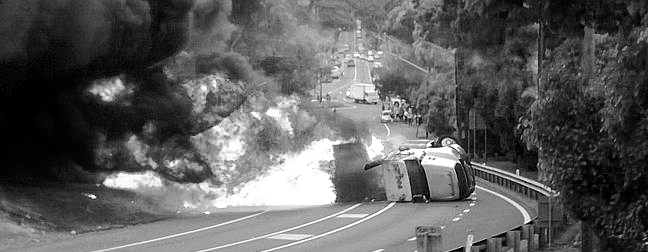Trucking heads push for state or federal ESC pledge
The heads of trucking industry bodies are pushing for the Federal Government to bring in compulsory electronic stability control (ESC) on all heavy vehicles.
A joint media release by the National Bulk Tanker Association (NBTA) and the Australian Road Transport Suppliers Association (ARTSA) says changes should be put in place straight away to reduce the rate of trucking-related deaths on the road.
Electronic stability control (ESC) is used to alert drivers to instability or lack of directional control, the high-tech systems can also respond to help correct such problems. The technology is mandatory on new trucks in Europe and may soon be brought in for the United States.
“The single most significant safety solution for heavy vehicles in the last 20 years has been left on the shelf long enough. The public demands better,” the joint statement says.
The push has been re-iterated after an accident in new South Wales late last year, which saw a fuel tanker lose control and roll over, bursting into flames and killing two people. That incident followed a similar event four years before, when a fuel truck from the same company slammed into several cars and exploded.
NBTA chairman Justin Keast is also the head of McColl's tanker division, one of the largest tanker fleets in the country. Mr Keast says operators without the system are fringing on negligence.
“The good operators in our industry have embraced ESC. It is no longer a debate and our association has supported its adoption for a number of years,” Mr Keast said.
“However there are a considerable numbers of operators who are happy to avoid it simply because it adds cost to their business. It is time to level the playing field and ensure that all new trucks and trailers are fitted with ESC.”
ARTSA chairman Dr Peter Hart says ESC can assist even the most experienced drivers.
“It is not a case of speeding; it is a case of misjudgement. Variable loading and slosh in tankers is another problem factor. The intelligent control system can foresee a developing problem and intervene,” he said.
Change has been frustratingly slow for industry members interested in safety.
The New South Wales Government has indicated it will require new dangerous goods trucks to use ESC from July this year.
But the negotiating panel for the changes has decided, in consultation with state and territory dangerous goods authorities, not to enforce the retrofitting of ESC devices. This is despite the average age of tanker trailers being about 25 years.
A spokesperson for the Federal Government minister responsible for heavy vehicles, Jamie Briggs, has told some media outlets that the upcoming stage of the National Heavy Vehicle Braking Strategy will “examine the case for mandating Electronic Stability Control (ESC) for heavy vehicles, while considering any technical limitations or challenges”.
The lack of progress is especially frustrating for Dr Hart, who was lead consultant in the formation of the National Heavy Vehicle Braking Strategy, a heavy vehicle engineer, and chairman of the ARTSA.
“ESC with roll-stability response should be mandated on new vehicles within 18 months. It's time that the Governments of Australia acted to make this a reality,” the joint statement said.
“When John Brumby was Premier of Victoria, he forced the motor car industry to adopt ESC for cars,” Dr Hart said in an ABC Radio feature on the topic.
“He simply said, if a car were sold in Victoria, it would not be registered unless it had ESC and side curtain airbags. It took a very short space of time before all States and the Federal government followed.
“We need one premier to stand up and say the same for heavy vehicles, and not just tankers,” he said.









 Print
Print